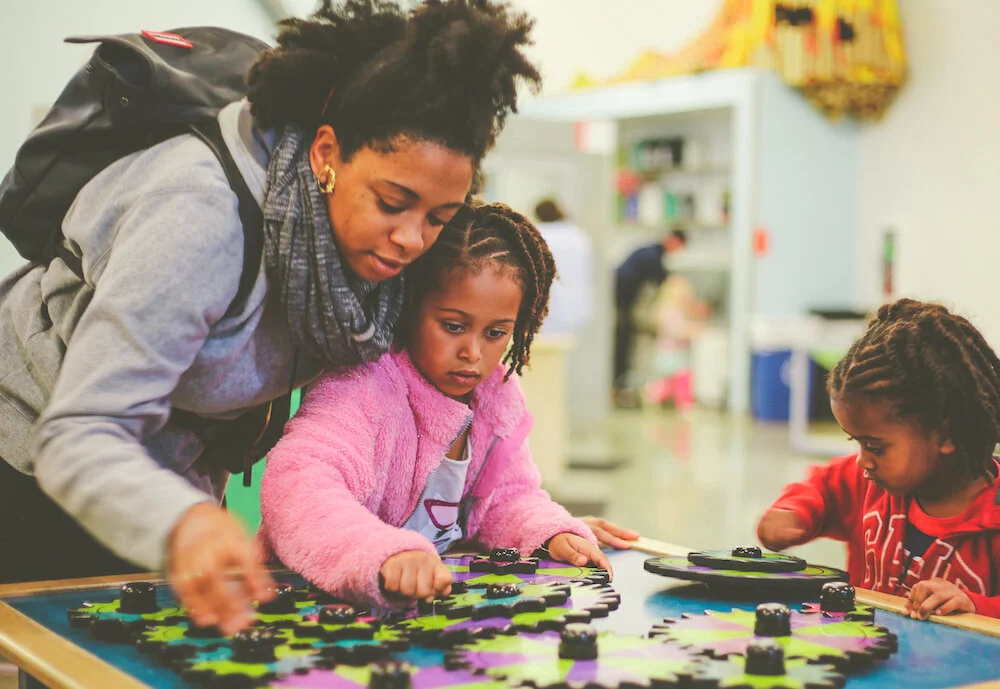Explaining, Exploring, and Scientific Reasoning in Museum Settings
In order to improve science, technology, mathematics, and engineering (STEM) learning, it is crucial to better understand the informal experiences that young children have that prepare them for formal science education. Young children are naturally curious about the world around them, and research in developmental psychology shows that families often support children in exploring and seeking explanations for scientific phenomena. It is less clear how to link children’s natural curiosity and everyday parent-child interaction with more formal STEM learning.
This collaborative project teamed up researchers from the University of California, Santa Cruz, the University of Texas, and Brown University with informal learning practitioners at the Children’s Discovery Museum, Thinkery, and the Providence Children’s Museum, respectively, in order to investigate how family interaction relates to children’s causal learning, as well as how modifications to museum exhibit design and facilitation by museum staff influence families’ styles of interaction and increase children’s causal learning. This project was funded by the Research on Education and Learning (REAL) program, which supports fundamental research by investigators from a range of disciplines in order to deepen what is known about STEM learning.
We examined how ethnically and linguistically diverse samples of parents and children engage in collaborative scientific learning in three children’s museums across the U.S. The research combined observational studies of parent-child interaction in a real-world setting with experimental measures of children’s causal learning. The investigators examined how children explore and derive explanations from museum exhibits about mechanical gear functions, air flow, electric circuits, and simple machines. In this way, the researchers investigated the relation between styles of parent-child interaction and children’s causal learning.
Current and future research will build on these findings by investigating novel ways of designing exhibits to facilitate exploration and explanation. We explored how signage, conversations with museum staff, parents’ attitudes towards learning in museum settings, and parents’ own prior knowledge about the exhibits can influence the parent-child interaction and subsequent causal learning. We seek to advance what is known about what affects children’s science content learning and develop and recommend new science museum exhibit designs to educate families about how to talk to their children about scientific phenomena.
Collaborators
- Project PI: Cristine Legare, Professor of Psychology and Director of Center for Applied Cognitive Science, The University of Texas at Austin
- Project PI: Maureen Callanan, University of California, Santa Cruz
- Project PI: David Sobel, Brown University
- Justin Busch, Former Graduate Student, The University of Texas at Austin
- Aiyana Willard, Former Postdocoral Researcher, The University of Texas at Austin
Funding
The project was funded by the National Science Foundation. Cristine Legare was the PI on this grant.
Field Sites
- Austin, Texas, USA

